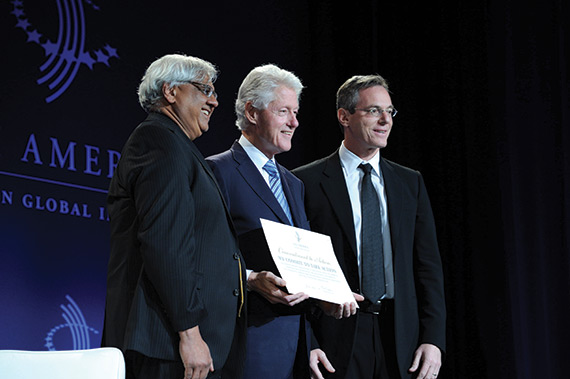Dean’s word: A new design for education
Earlier this year, we had the great honor of hearing Paul Jacobs, chairman and CEO of the global semiconductor company Qualcomm, announce a $20 million gift to UC Berkeley during a live webcast of the Clinton Global Initiative–America meeting in Chicago.
Tomorrow’s engineering leaders must be well-rounded problem solvers — able to prototype and iterate rapidly.
Dr. Jacobs—who holds three degrees from our EECS department and chairs the college’s advisory board—chose to announce this gift before a global audience because he sees how critical Berkeley Engineering and its graduates are for America’s future as an innovation economy.
First of all, this commitment allows us to launch a new institute for design innovation and build design and prototyping studios where students can make their ideas production-ready (see Jacobs gift launches design institute). Using advanced 3-D printers and other equipment and software, our students will design and fabricate new solutions for biomedicine, clean energy—wherever Berkeley engineers can improve people’s lives.

In June, Dean Sastry joined Bill Clinton onstage at the Clinton Global Initiative conference in Chicago as Qualcomm CEO Paul Jacobs announced a $20 million gift for a new design institute at the College of Engineering. (Photo by Barbara Kinney/Clinton Global initiative)
At the same time, we see this as the start of a complete reinvention of engineering education. Tomorrow’s engineering leaders must be well-rounded problem solvers — not only versed in design and comfortable with creative concepts, but also able to prototype and iterate rapidly. They must have hands-on knowledge about the technologies and materials they are working with, and they must be able to conceptualize end-user needs, whether in the individual customer or in entire communities.
Our students amaze us with their ability to come up with new and original solutions to problems. Four seniors in bioengineering professor Amy Herr’s capstone design course, for example, teamed up last year with a practicing surgeon to invent a better laparoscope — one that does not need to be cleaned periodically during surgery. Their inspiration? A simple ballpoint pen.
The Jacobs Institute for Design Innovation will allow us to meet surging student demand for experiential learning. The institute’s offerings will go beyond mere skill development; they will also provide our students with opportunities to practice teamwork and leadership. Many studies show that these kinds of opportunities, especially when they come early in engineering education, boost retention rates and keep more students in the pipeline toward rewarding engineering careers.
We are excited and honored to be leading this transformation of engineering education at Berkeley, and we look forward to seeing the results of our work in the impact our students will make as global technology innovators.
—S. Shankar Sastry
Dean and Roy W. Carlson Professor of Engineering
Director, Blum Center for Developing Economies
Adapted from an opinion piece that first appeared in the Daily Californian.
